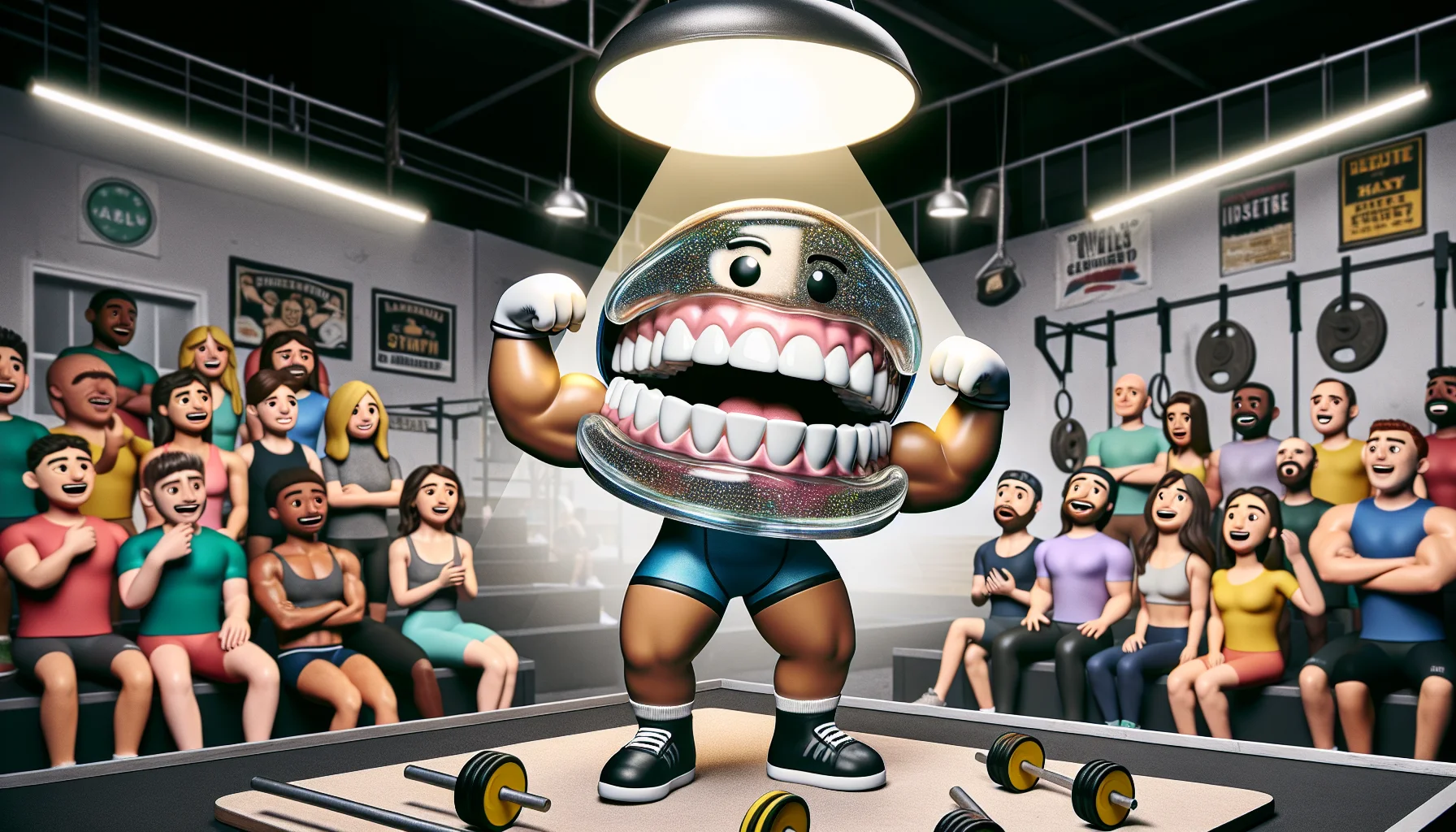Powerlifting mouthguard Quiz
Test Your Knowledge
Question of
The Importance of a Powerlifting Mouthguard
Using a mouthguard during powerlifting is crucial for both safety and performance enhancement. It serves as a protective barrier, safeguarding teeth and gums from potential damage caused by the intense pressure and clenching often experienced during heavy lifts. Moreover, a well-fitted mouthguard can help in aligning the jaw properly, which is essential for maintaining optimal breathing and focus. This alignment can also contribute to a more stable and efficient force production, allowing athletes to perform at their best while minimizing the risk of injury. Thus, incorporating a mouthguard into powerlifting gear is a smart move for athletes looking to protect their oral health and improve their lifting performance.
How to Choose the Right Powerlifting Mouthguard
- Material: Look for mouthguards made from high-quality, BPA-free materials that are safe and non-toxic. The material should be flexible enough to provide comfort but durable enough to offer protection.
- Fit: A good fit is crucial for protection and comfort. Opt for a mouthguard that can be custom-fitted to your teeth, ensuring it stays securely in place during lifting.
- Durability: Choose a mouthguard designed to withstand the rigors of powerlifting. It should be resistant to tears and abrasions, ensuring it lasts through rigorous training sessions and competitions.
The Top Benefits of Using a Mouthguard in Powerlifting
Using a mouthguard while engaging in powerlifting offers a multitude of advantages that go beyond the basic protection of one's teeth. Firstly, it serves as a crucial barrier against dental injuries, which can occur from accidental clenching or external impacts during lifts. By distributing the force exerted on the teeth evenly, mouthguards help prevent fractures, chips, and even tooth loss. Beyond physical protection, mouthguards have been shown to enhance focus during lifts. The act of biting down on a mouthguard can increase concentration and reduce distractions, allowing lifters to fully commit to their performance. Additionally, there is evidence to suggest that using a mouthguard can potentially improve overall performance in powerlifting. It is believed that the alignment of the jaw when using a mouthguard can positively affect the distribution of force throughout the body, leading to more efficient and powerful lifts. This combination of dental protection, improved focus, and potential performance enhancements makes using a mouthguard an advantageous practice for any powerlifter looking to optimize their training and safeguard their health.
Types of Mouthguards for Powerlifters
- Boil-and-Bite Mouthguards: These mouthguards are made from thermoplastic material. You boil them to soften and then bite into them, allowing them to mold to the shape of your teeth and gums. They provide a better fit than stock mouthguards and are a popular choice among athletes for their balance of comfort and protection.
- Custom-Fitted Mouthguards: Made by dental professionals from a mold of your teeth, these mouthguards offer the best fit and protection. They are specifically designed to match the contours of your mouth, providing optimal comfort and security during lifting. Although they are the most expensive option, their superior fit and protection make them a worthwhile investment for serious powerlifters.
- Stock Mouthguards: These are pre-formed and ready to wear. They are the least expensive option and can be bought at most sporting goods stores. However, they often don’t fit very well and can be bulky, making them uncomfortable and less effective at protecting your teeth during intense lifting sessions.
Maintaining Your Powerlifting Mouthguard
To ensure your powerlifting mouthguard remains in top condition, regular cleaning and proper storage are essential. Rinse your mouthguard with cold water or mouthwash after every use, and deep clean it at least once a week using a toothbrush and toothpaste or a specialized mouthguard cleaner. Avoid using hot water as it can warp its shape. After cleaning, let it air dry completely before storing it in a ventilated case to prevent bacterial growth. Additionally, keep it away from extreme heat or direct sunlight to maintain its integrity. Following these simple steps will help extend the life of your mouthguard, ensuring your safety and hygiene during your powerlifting sessions.
FAQs About Powerlifting Mouthguards
| Question | Answer |
|---|---|
| Why do powerlifters use mouthguards? | Mouthguards help distribute the stress caused by clenching during lifts, which can protect teeth and reduce the risk of jaw injuries. |
| Can wearing a mouthguard improve my performance? | Some athletes find that mouthguards help them focus and exert force more effectively, potentially improving performance. |
| What type of mouthguard is best for powerlifting? | A custom-fitted mouthguard is generally considered the best option for comfort and protection. |
| How do I care for my powerlifting mouthguard? | After each use, rinse it with water, clean it with a toothbrush and mouthwash, and store it in a ventilated case. |
| How often should I replace my mouthguard? | It's recommended to replace your mouthguard every 6 to 12 months, or sooner if it shows signs of wear. |












